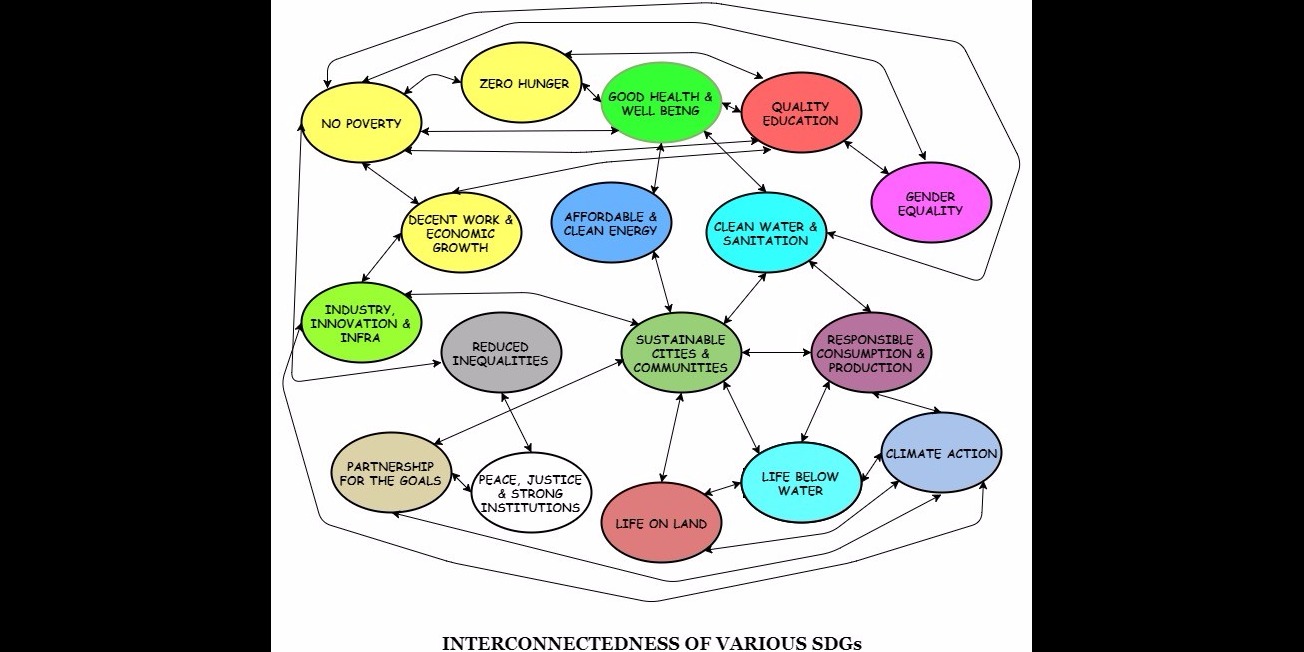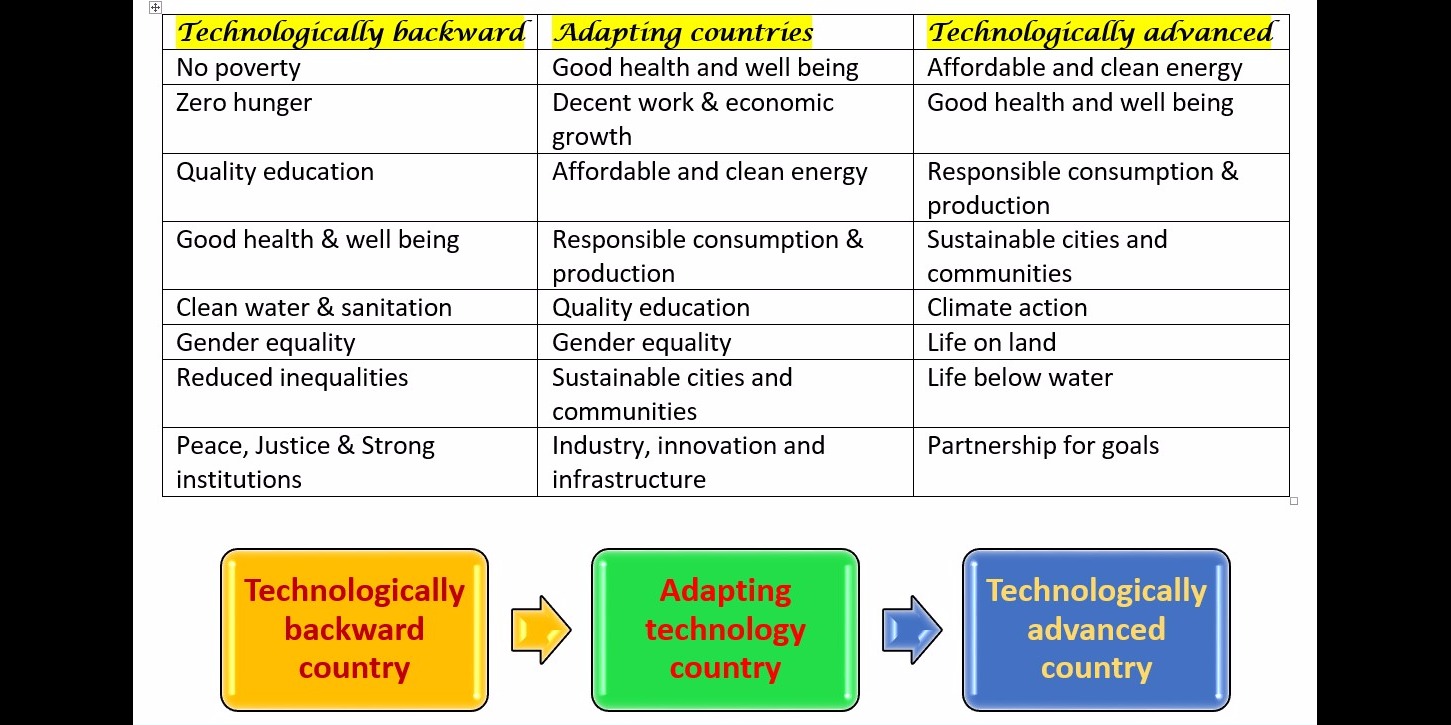

Opinion - SDGs and technology
24th October – United Nations Day
Sustainable Development Goals (SDGs) give a nation and its citizens a vision towards their country’s development.
The SDGs designed by the UNITED NATIONS DEVELOPMENT PROGRAMME (UNDP) to be achieved by 2030 are interconnected network of achievements. The interconnections can be shown as

undefined
The countries of the world can be categorised more specifically based on technology as technologically backward, adapting and technologically advanced countries. This digital divide among the nations is becoming large and the focus is on prioritizing the SDGs based on the status of country or region has become the major focus in its report of 2017.

undefined
EDUCATION SECTOR:
Goals like ‘quality education’ have diverse focus on the three types of digitally varied regions mentioned above. Technologically backward countries, the focus is on bringing children to classrooms and providing quality teachers, in case of adapting countries the focus is on sustaining performance and quality of education and in technologically advanced countries the focus is on controlling drop outs, creating interest and developing skills among its students.
Similarly, ‘Good health and well-being’ is another goal which take different meanings based on the country where it is applicable and most often the goal is related to lack of education or ignorance of educated individuals.
Technology to some extent has penetrated to all segments of the society. It may be in the form of television or tablets or mobiles. Achieving ‘Quality education, good health and well-being and gender equality’ are some of the goals which can be achieved through incorporation of technology. Technology provides both source of learning and awareness of various factors relating to the issue at hand.
Focussing on education through Open Educational Resources (OERs) available as podcasts, YouTube videos, webinars and apps for mobiles are some methods to overcome the learning stagnation in the backward countries. Case studies, struggle for survival and mode of living can be a lesson for the advanced countries to develop empathy. This in turn, will help develop ‘Equity’ among the global citizens. Knowledge about regions, awareness about feelings and understanding livelihood can help us build a better world.
Sharing resources, responsible utility of resources, concern for humans and animals will help develop a world full of responsible, literate and coexisting people. An example for this is ‘The 33 ideas that can change the world’ - related to technology involvement in Sustainable Development.
‘ORDERLINESS’ needs time and energy. Advanced nations need to take up the responsibility to bring up backward regions to attain SUSTAINABILITY. ‘2030’ is not far but the 17 SDGs are.





